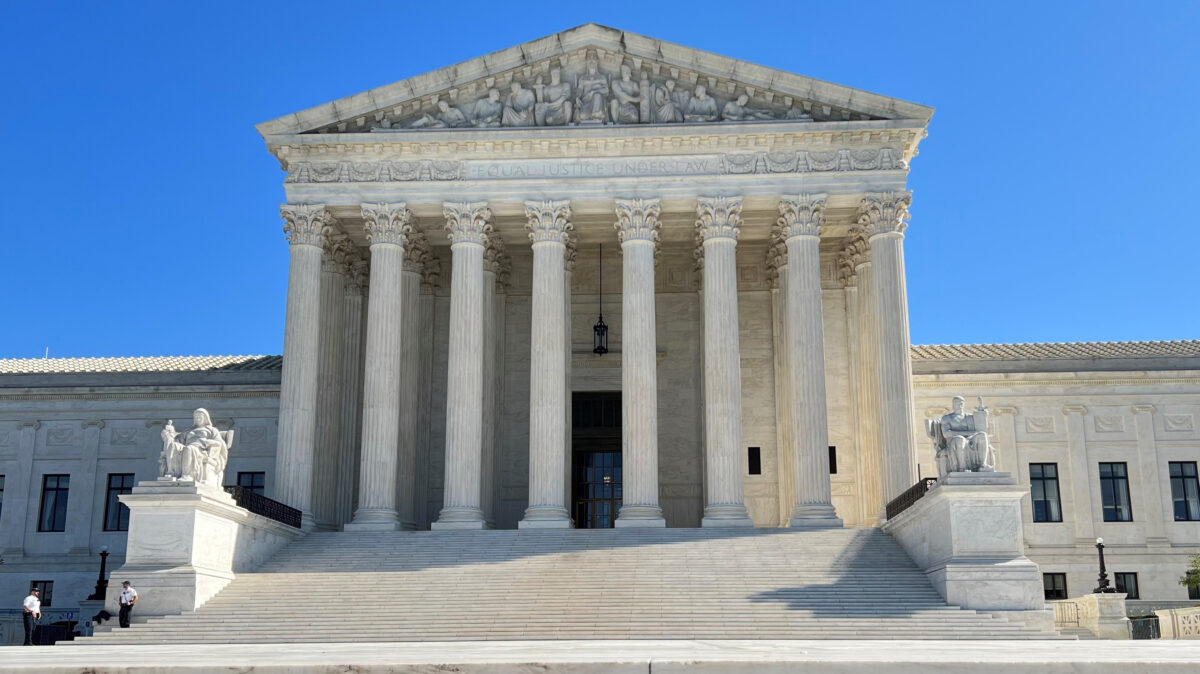High Stakes at the High Court
TOPICS
Supreme CourtZippy Duvall
President

photo credit: AFBF photo by Mike Tomko
Zippy Duvall
President
Every year, I watch a trailer full of calves leave my farm, headed to another farm to continue growing. As the truck pulls out, I feel a sense of pride because I raised healthy calves in a humane and caring way. And I know that farmers and ranchers across the country work hard every day to do the same thing on their farms.
As the Voice of Agriculture in Washington, the American Farm Bureau advocates for policies and regulations that respect America’s farmers and ranchers and the thoughtful choices we make every day in caring for our land and animals. Sometimes our efforts lead us to the nation’s highest court, which is the case this week.
The U.S. Supreme Court has agreed to hear a lawsuit we filed with the National Pork Producers Council to stop California’s Prop 12 from going into effect. California’s proposal would ban the sale of pork unless the sow that gave birth to the pig was housed according to the state’s arbitrary production standards. Here’s the giant red flag, the California law would apply to pork raised on farms outside of California, too, essentially giving one state the power to set the law of the land across the country.
The Court only accepts 1% of the cases filed there, making this decision even more important for farmers, ranchers and consumers
That’s why we filed a lawsuit to challenge Prop 12. The fact that the Supreme Court agreed to hear the case tells us they recognize how high the stakes are for agriculture. The Court only accepts 1% of the cases filed there, making this decision even more important for farmers, ranchers and consumers. The fact that at least four of the nine justices agreed to hear the case demonstrates how important this issue is. Their decision could set a precedent for how regulations in one state can impact food production across the country.
Laws like Prop 12 can have significant unintended consequences. The costs to comply with new rules could be too great for small farms, making it difficult to stay in business and driving more consolidation in agriculture. They could put animal welfare at risk. Or they could limit how farmers combat disease in crops and livestock. While voters in California wanted to ensure that animals were well cared for, Prop 12 doesn’t achieve that goal. And one state’s misguided law certainly shouldn’t dictate farming practices across the country.
Prop 12 is the perfect example of how people’s good intentions can result in bad policy because of over-simplification of complicated issues. California voters were told that Prop 12 would lead to healthier and safer animals because pregnant sows would be able to move around with other pregnant sows and not be kept in gestation stalls. However, farmers know that sows become incredibly aggressive and dangerous at certain points during their pregnancy. Larger sows steal food from smaller sows, and often violently lash out at them. Gestation stalls keep pregnant sows apart from one another for their safety and to ensure they are getting the proper nutrition and care they need to keep themselves and their piglets safe.
The animal welfare discussion about the design and use of gestation stalls is a separate issue from the question here: whether individual states should be able to dictate standards on farms far beyond their borders. The implications are substantial for interstate commerce—for farmers, consumers and the entire food supply chain.
We are pleased that the Court has decided to hear our case. Now you can bet we’ll roll-up our sleeves and do our best to present an honest picture of the high stakes that hang in the balance for agriculture.
Zippy Duvall
President
Vincent “Zippy” Duvall, a poultry, cattle and hay producer from Greene County, Georgia, is the 12th president of the American Farm Bureau Federation.
Trending Topics
VIEW ALL